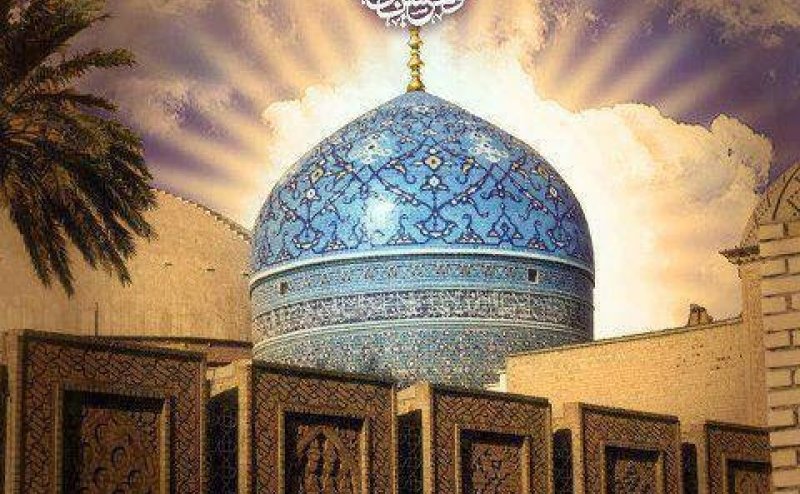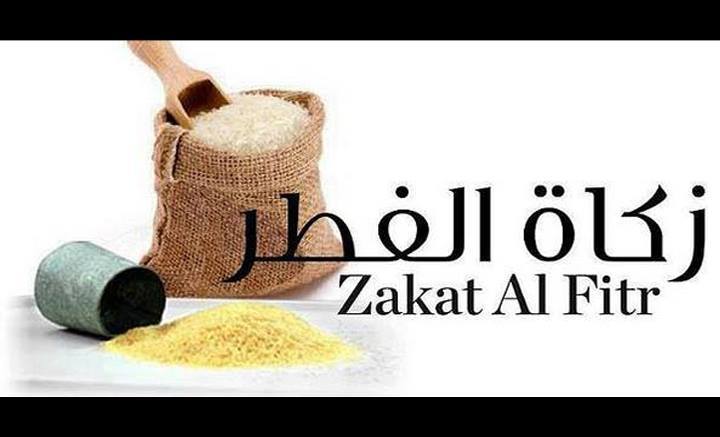- 03214507000
- sultanulfaqr@tehreekdawatefaqr.com
[vc_row][vc_column][vc_column_text]
Importance of Ramadan:
It is related from Salman al-Farsi that the Holy Prophet (pbuh) delivered a sermon to us on the last day of Shaban (the month before Ramadan):
“O people! A great month has cast a shadow (of mercy and blessings) over you. Allah has obligated fasting (during the day) and supererogated the night stay. A person who will perform any virtuous deed in this month (Ramadan) to truly seek the closeness of Allah is blessed with the reward of an obligatory prayer. Whoever performed the obligatory prayer in Ramadan, his reward is as much as if he has performed seventy obligatory prayers in the months other than Ramadan. It is the month of patience and the reward of patience is heaven. It is the month of equality, compassion and sympathy. It is a month in which the sustenance of the believer (Mumin) is increased, and whoever breaks the fast of a fasting person (during iftar), his sins are forgiven and he is freed from the fire (of hell), this does not decrease the reward of the fasting person.”
We (Salman al-Farsi and other Companions) requested: ‘’O Messenger of Allah (pbuh)! Not every one of us can (help) break the fast.’’
Prophet Mohammad (pbuh) replied:
‘’Allah Almighty also gives this reward to the person who breaks the fast of someone with even a sip of milk, a date or a sip of water. Whoever feeds the fasting person, Allah will give him water from my Pond of Abundance (Hawdh al-Kawthar). He will not be thirsty till he enters Paradise. The first part of Ramadan is mercy, second part is forgiveness and the third one is liberation from fire (of hell). Whoever lightens the burden of his servant (from daily chores) in this month, Allah will forgive him and set him free from the fire’’. (Mishkat al-Masabih)
The Prophet Mohammad (pbuh) said:
“Rajab is the month of Allah, Shaban is mine and Ramadan is month of my umma.’’
[/vc_column_text][vc_column_text]
Etymology of Ramadan:
The word “Ramadan” or “Ramazan” is derived from the Arabic word ‘’رمض’’ (Ramdh) meaning ‘’to burn’’. This month burns the sins of Muslims hence termed as ‘’Ramadan.’’
Etymology of Sawm:
The Arabic word for fasting is ‘’Sawm’’, which means to abstain. In the state of fasting, a Muslim abstains from eating and drinking completely from Fajr to Maghrib prayer thus named as ‘’Sawm’’.
Obligation of Sawm (Fast) in Ramadan:
The Divine command for the obligation of ‘’Sawm’’ (fasting) in Ramadan was revealed in 02 AH, almost fifteen days following the change of the Qibla (Tahweel al-Qibla).
The Purpose to Mandate Sawm (Fast) in Ramadan:
Every act of worship or deed has a purpose. What is the purpose of Sawm (fasting)? Allah says in Quran:
Meaning: ‘’O believers! Sawm (fasting) is obligatory for you as it was obligated for the people before you so that you may adopt piety.’’ (2:183)
From this verse it is clear that the purpose of the obligation of fasting is to make the Muslims pious. The Holy Prophet (pbuh) said:
“The best amongst you is the one who is most pious.’’
What is Piety?
The Holy Prophet (pbuh) was once asked about piety. He (pbuh) pointed to his (sacred) heart and said:
‘’Piety is here.’’ (Muslim 6541)
Piety is actually the closeness of inward to Allah Almighty. The closer one’s inward is to Allah, the more pious one is. Piety, in fact, is proximity to Allah. (Sawm) fasting brings a person closer to Allah. Allah says about this act of worship: “Sawm (fasting) is for me and I am the reward for it.”
It is written in Quran:
Meaning: “This Book (Quran) guides the pious (towards the righteous path).” (Al-Baqarah)
The (light of) guidance from the Holy Quran is given only to those who are pious.
Levels of Piety
1st Level
The first level of piety is that one avoids all that for which Islamic scholars and jurists have issued a decree. This is the piety of ordinary Muslims.
2nd Level
The second level is abstinence from things that are unclear. This means that something is apparently made halal (permissible) in the Shariah but is doubtful. This is the piety of virtuous people.
3rd Level
Third level is to avoid the things having even a slight suspicion of being haram. This is the status of elevated pious ones.
4th Level
The fourth level is to avoid things which become hurdle in worship and obedience. This is the piety of the truthful (Siddiqeen).
Conclusion from Levels of Piety:
As for the first degree which is the piety of the common people is the renunciation of disbelief and polytheism. The second level in which it is commanded to abstain from the prohibitions of shariah and to forsake sin is the piety of the pious. The third level is the piety of virtuous ones which reduces the hurdles in worship and obedience. The fourth level refers to those who have renounced everything except Allah and prevent all worldly distractions from entering their inwards. They are free from evils of innerself and Satan. This is the piety of the chosen ones meaning Mystics. These pious are beloved.
Hence, the real purpose of (Sawm) fasting is to make one pious. If piety is attained, then guidance, Divine light and righteous path is gained from the Holy Quran.
Significance of Ramadan to gain Piety
Just as man strives to attain the highest rank and the luxurious life in the world, likewise, he should strive for the highest rank and status of piety. Ramadan is a golden opportunity to seek the righteous path and piety from Allah Almighty.
The Reward of Sawm (Fasting)
[/vc_column_text][vc_single_image image=”19899″ img_size=”full” alignment=”center”][vc_empty_space height=”22px”][vc_column_text]
The Prophet Mohammad (pbuh) said that Allah says:
‘’I reward ten to seven hundred times for every virtuous deed, but Sawm is (fasting) especially for Me, so I Myself am its reward.”
The Holy Prophet (pbuh) said:
“Patience is half faith and Sawm (fasting) is half patience”.
He (pbuh) further said,
“The odor from the mouth of a fasting person is dearer to Allah than the smell of musk.”
Allah Almighty says:
‘’My slave refrains from eating, drinking and having intercourse just for My sake, only I can reward for it.’’
The Prophet (pbuh) said:
“The sleep of fasting person is worship, breathing is to glorify Allah (tasbih), and supplication is well answered (accepted).”
And Prophet Mohammad (pbuh) further said: The doors of paradise are opened and doors of hell are closed on the arrival of Ramadan. The devils are imprisoned and an announcer proclaims, “O seeker of virtue! Your time shall come soon and O seeker of evil! Stop, for you have no place.”
[/vc_column_text][vc_column_text]
The Sawm (Fasting) of Mysticism And Reality

Ghawth al-Azam Sheikh Abdul Qadir Jilani says:
- The Sawm (fasting) of Shariah is that a person abstains from eating and drinking and having sexual intercourse during fasting.
- The Sawm of Mysticism refers to esoteric and exoteric avoidance of all forbidden in shariah and evils such as to refrain from pride, arrogance, envy, greed, malice, hatred, selfishness, narcissism and conceit etc. If the seeker commits any of the above evils, then the real (inwardly) Sawm becomes flawed and weak.
Sawm of Shariah is for a specific duration but the sawm of mysticism is sawm of whole life. (eternal)
The Prophet Mohammad (pbuh) said,
“There are many people who observe fast and get nothing from it except starvation and thirst.”
That is why, it is said that there are many people who apparently observe fast but actually they do not and there are many who are not in the state of fasting exoterically but inwardly they are i.e. they refrain themselves from the acts that are forbidden in shariah and avoid harming others.
Allah says in Qudsi Hadith
“Sawm (fasting) is for Me and I am its reward.”
The Prophet Mohammad (pbuh) said:
‘’There are two joys for the fasting person. One is the joy of Iftar and the other is the joy of Divine vision. May Allah grant us these blessings too.’’
The scholars and follower of shariah have taken the meaning of Iftar to be “eating and drinking at sunset” and the concept of “vision” is to see the crescent of Eid al-Fitr. Contrary to this, the Mystics have described Iftar means to ‘’enter the paradise and breaking the Sawm of reality by enjoying Allah’s blessings. While, the meaning of “vision” in this Divine vision of Allah Almighty. May Allah grant us all these blessings.
The Sawm of Reality refers to purifying the inward from all worldly and heavenly desires except Allah and to keep the secret (sir) free from the love of observing other than Allah.
Allah says in Qudsi Hadith,
“The man is My secret and I am the secret of man. The secret (sir) is from Divine light; therefore, it is not inclined towards anyone except Allah. It has no beloved, affection and desire in this world and in the hereafter except the Divine Essence. If the secret (sir) of a man falls in love with other than Allah, his Sawm of reality becomes imperfect. Its qada (atonement) is to discard love of everyone except Allah in this world and in the hereafter and to return to the sublime and submerge in the Divine love, Divine union and Divine vision as stated in the Qudsi Hadith: “Sawm is for me and I am its reward.” (Sirr al-Israr)
Al-Ghazali says, Sawm is divided into three grades:
- Sawm of the commons
- Sawm of the specials
- Sawm of the chosen ones
Sawm (fasting) of the common people is to abstain from eating, drinking and intercourse during fasting. This is the lowest grade.
However, highest grade is Sawm (fasting) of the chosen ones which includes purification of inward from the love of everything except Allah and submitting oneself to the Divine will. This means to keep the Sawm both esoterically and exoterically. If a person is involved in unnecessary worldly matters despite invocation of Allah, then this Sawm of reality breaks. However, thinking about the matters which are helpful for the religion is not included in the worldly affairs. The religious scholars even consider it to be a sin that a person plans to arrange the Iftar because it depicts the fact that he does not believe in the promise of Allah about providing the sustenance. This is the status of Prophets and Truthful (Siddiqeen). Not everyone reaches this status.
The Sawm of the special ones is not only to refrain from eating, drinking and intercourse but it is also to keep oneself away from all evil and inappropriate activities. This Sawm is completed by six things.
- First is to restrain eyes from seeing everything that diverts the inward away from Allah Almighty. Especially avoid one’s sight from watching anything which ignites sensual desires. As the Holy Prophet (pbuh) said, ‘’Eyesight is one of the venomous arrows of Satan.’’ Whosoever will control his eyesight due to the fear of Allah, Allah will grant him the dignity of faith that will adorn his inward’’.
It is narrated from Anas ibn Malik that Holy Prophet (pbuh) said,
‘’There are five things which (interrupt and) break the Sawm (fast):
- Lie
- Backbiting
- Captiousness
- Perjury
- Seeing someone with sensuality
- Second thing which perfectly completes the Sawm is to avoid obscene and unnecessary conversation. A person should either stay quiet or keep himself busy in reciting the Holy Quran or invocation of Allah Almighty. Unnecessary arguments and disputes are also included in obscene conversation. Some religious scholars also consider that lie and backbiting breaks the Sawm of common people only.
During the era of the Holy Prophet, two women were near to death due to thirst during their fast. They asked for permission to break their fast from the Holy Prophet (pbuh). The Holy Prophet (pbuh) sent them a bowl to regurgitate in it. Both of them vomited blood clots in it. People were surprised at this incident. The Holy Prophet (pbuh) said that both of those women kept their Sawm (fast) by eating Halal but broke their (Sawm) fast with Haram i.e., they committed backbiting and the blood clots were flesh of the person whose backbiting they did.
- Thirdly, a person should not listen to bad conversation as the words that are not permissible to speak should not be heard as well. A person who listens to lie and backbiting is equally responsible for the punishment.
- Fourth one is to keep away all the body parts from the evil and inappropriate activities. A person who observes Sawm (fast) and stops eating food but keeps on committing evil is same as the person who avoids getting sick but keeps on eating toxins because wrongdoing is toxic while food is nourishment. Excessive food is also harmful, however, having the required and moderate sustenance is not detrimental. Therefore, the Holy Prophet (pbuh) said, ‘’There are many who get nothing from Sawm (fast) except hunger and thirst.’’
- Fifth is that one should not take Haram and doubtful edible at Iftar. Even Halal food should be eaten in moderate quantity. The purpose of Sawm is to diminish the desires and eating a lot at a time boosts the desire, especially when many varieties of food are available. The inward cannot be purified unless the stomach remains empty.
It is the Sunnah of Prophet Mohammad (pbuh) that a person should not sleep much during daytime and keep himself awake so that he may feel hunger and weakness. When he will eat less at night, he will be able to sleep early and wake up for Tahajjud (night prayer). The Holy Prophet (pbuh) said, “No filled vessel is worse than the stomach for Allah.”
- Sixth is that at Iftar one should not be confused inwardly whether his Sawm is accepted or not.
Hasan al-Basri once passed by a community on Eid who were enjoying themselves. He said, “Allah Almighty has made Ramadan like an arena, so that people may augment and progress in His obedience and worship. One group succeeded and the other one left behind. I am surprised at those who are unaware of reality and yet they are cheerful. I swear to Allah if the reality is disclosed and the states are revealed then those people whose worships have been accepted will enjoy. On the other hand, those people whose worships have not been accepted and disapproved will be full of sorrow and they will not be indulged in any pleasures.”
Conclusion:
Hence, it is proved that Sawm (fast) of those people is apparent only (not a real soul of Sawm) who just refrain themselves from eating and drinking. The reality of Sawm (fast) is that the person should try to make himself pure like the angels because angels are free from all kind of desires and animals are full of sensual desires. This is the reason animals are much inferior to the angels. Hence, this criterion represents that every person whose sensual desires dominate him is like an animal and the one who has overcome his sensual desires is like an angel and shares the same attributes as angels. As angels are close to Allah similarly the person with these attributes is in proximity to Allah too. The person who fills his stomach to its desire and delays in establishing evening prayer (Maghrib), his sensual desire is enhanced. This person does not attain the soul of Sawm (fast). (Kimiya-i-Saadat)
Significance of Iftar and Suhur in Ramadan according to Hadith

- Amr ibn al-As narrates that Prophet Mohammad (pbuh) said, “The difference between Sawm (fasting) of Christians and Muslims is taking Suhur.”
- Abu Hurairah also relates that the Holy Prophet (pbuh) has prohibited observing consecutive fast without Suhur. A person said to the Holy Prophet (pbuh) that you observe fast consecutively without Suhur. The Prophet Mohammad (pbuh) replied, “Who amongst you can be like me? I spend my entire night (with Allah), my Allah feeds me.”
- It has been narrated by Abu Hurairah that the Holy Prophet (pbuh) said, “Dates are good food of Suhur for the believers (Mumin).”
- The Holy Prophet (pbuh) said, “Suhur is a blessing, do not abandon it. If there is nothing to eat then at least drink a sip of water instead. Because Allah blesses those who take predawn meal and the angels pray for them.” (Musnad Ahmed, Muarif al-Hadith)
- Sahal ibn Saad relates that the Holy Prophet (pbuh) said, “People will remain fortunate and at good until they hurry in Iftar.”
- Abu Hurrairah relates another Hadith that Holy Prophet (pbuh) said, “Until the Muslims will keep hurrying in Iftar, the religion (Islam) will remain dominant because the Jews and Christians (non-Muslims) delay Iftar.”
Laylat al-Qadr /Qadr Night / Shab-e-Qadr

The Arabic term for ‘’night’’ is ‘’Laylat’’ and Persian term is ‘’Shab’’. The meaning of ‘’Qadr’’ is significance, greatness and value. Thus, Laylat al-Qadr means the night of significance and greatness. By the grace of Prophet Mohammad (pbuh), Allah Almighty blessed the Muslim umma with a very special night, in which the reward of worship and obedience is greater than the worship and obedience of a thousand months.
- It is stated in the Muwatta Imam Malik that when the Holy Prophet (pbuh) was told about the long lives of previous ummah, he (pbuh) became worried that since people of his umma have been granted short lives then how come their deeds would be equal to the people of other ummas. Thus, Allah blessed the Holy Prophet (pbuh) with Laylat al-Qadr which is greater than the (worship and obedience of) a thousand months.
- Ibn Abbas narrates that when we discussed about the Jihad of an individual from Bani Israel for thousand years in the court of the Holy Prophet (pbuh), he (pbuh) wondered about it and prayed for his umma, “O’ my Lord! Due to the short lives of my umma they will be unable to perform as much good deeds”. Thus, Allah Almighty blessed him (pbuh) with the Shab-e-Qadr. (Tafseer al-Khazin)
- Al-Suyuti relates from Anas ibn Malik that the Holy Prophet (pbuh) said,
“Allah Almighty has blessed only my umma with. Laylat al-Qadr. This blessed superiority has been granted to none of the previous ummas.”
ITIKAF

The virtue of last ten days of Ramadan is salvation from the fire (of hell). It is Sunnah muakkadah and Fard al-Kifayah to perform Itikaf in these last days i.e. sufficient for others if some of them perform Itikaf. Whosoever performed Itikaf during the last ten days of Ramadan, it is like performing two Hajj and Umrahs (this means getting the same reward). (Bayhaqi, Maariful Hadith)
- It is related that the Holy Quran was recited before the Holy Prophet (pbuh) once every year. The year he (pbuh) passed away (physically) it was recited twice before him (pbuh). The Holy Prophet (pbuh) used to perform Itikaf for ten days every year but in the year of his demise he (pbuh) did so for twenty days.
- Anas ibn Malik relates that the Holy Prophet (pbuh) used to perform Itikaf in the last ten days of Ramadan. One year he (pbuh) did not perform it. He (pbuh) performed Itikaf for twenty days following year.
- Ibn Abbas narrates that the Prophet Mohammad (pbuh) said in the favour of person who performs Itikaf, “He stays away from the sins. His virtuous deeds continue like virtuous people.”
Sadqa-e-Fitr/ Zakat al-Fitr

The Prophet Mohammad (pbuh) said, “The Sawm (fast) of a person remains suspended between the world and the heavens unless he pays the Sadqae-Fitr. (Zakat al-Fitr).”
Sadaqah-e-Fitr is Wajib. If it has not been paid in the last year, it is necessary to pay it in the present year. There is no condition of Sawm for paying Sadqa-e-Fitr. This means that if a person has not observed Sawm (fast) during Ramadan it is still necessary to pay it.
- Abd Allah ibn Amr ibn al-As relates that the Holy Prophet (pbuh) sent a person in the streets of Makkah to announce that Sadqa-e-Fitr (Zakat al-Fitr) is Wajib for everyone whether he is a male or female, free man or a slave, child or an adult. It should be equal to the weight of almost four pounds of wheat or three and a half kilograms of any other grain or dates etc. (or their equivalent price) and it should be given before offering Eid prayer.
(Note: This blog is an English translation of Urdu article فضائلِ رمضان which appeared in April 2022 edition of Monthly Sultan-ul-Faqr Lahore. This article is taken from the Urdu book “Haqeeqat-e-Roza” authored by Sultan-ul-Ashiqeen Sultan Mohammad Najib-ur-Rehman. Dr. Mohammad Waseem Akram Sarwari Qadri has translated it in English as ‘Virtues of Ramadan’)

𝗤𝘂𝗲𝘀𝘁𝗶𝗼𝗻𝘀
What is the importance of Ramadan/Ramazan in Islam?
Ramadan is a golden opportunity to seek the righteous path and piety from Allah Almighty. It is the month of mercy, forgiveness and salvation from fire of hell.
What is the significance of Sawm (fasting)?
Allah says in Qudsi Hadith “Sawm (Fasting) is for Me and I am its reward.” If Sawm is observed with perfection of its soul, it becomes the source for enlightenment of inward and hence closeness to Allah.
What are the rewards of Sawm (fasting)?
One of the many rewards of Sawm is closeness to Allah. The Prophet Mohammad (pbuh) said that Allah says: ‘’I reward ten to seven hundred times for every virtuous deed, but Sawm (fasting) is especially for Me, so I Myself is its reward.”
What is the highest category of Sawm (fasting)?
According to Ghawth al-Azam Sheikh Abdul Qadir Jilani: The Sawm of Reality refers to purify of the inward from all worldly and heavenly desires except Allah and to keep the secret (sir) free from the love of observing other than Allah.
Al-Ghazali states: The highest grade is Sawm (fasting) of the chosen ones which includes purification of inward from the love of everything except Allah and submitting oneself to the Divine will. This means to keep the Sawm both esoterically and exoterically.
What is significance of Laylat al-Qadr/ Qadr Night/ Shab-e-Qadr?
By the grace of Prophet Mohammad (pbuh), Allah Almighty blessed the Muslim umma with a very special night Laylat al-Qadr, in which the reward of worship and obedience is greater than the worship and obedience of a thousand months.
What is significance of Itikaf?
Ibn Abbas narrates that the Prophet Mohammad (pbuh) said in the favour of person who performs Itikaf, “He stays away from the sins. His virtuous deeds continue like virtuous people.”
What is Zakat al-Fitr/ Sadqa-e-Fitr?
Sadaqah-e-Fitr is Wajib. If a person did not pay it in the last year, it is necessary to pay it in the present year. There is no condition of Sawm for paying Sadqa-e-Fitr. This means that if a person has not observed Sawm (fast) during Ramadan it is still necessary to pay it. [/vc_column_text][/vc_column][/vc_row]
Leave Your Comments
Tehreek Dawat e Faqr Copyright 2024 - All Rights Reserved



31 Thoughts to 'Virtues of Ramadan'
Waheed Hassan
22/04/2022 at 7:11 pmMay Allah bless us with the virtues of Ramadan and make this a source of inward enlightenment for us.
Abdulrehman
22/04/2022 at 7:15 pmMashaallah 💖
Noreen
22/04/2022 at 7:24 pmBeautiful Article
imran
22/04/2022 at 8:28 pmThe Prophet Mohammad (pbuh) said:
“Rajab is the month of Allah, Shaban is mine and Ramadan is month of my umma.’’
imran
22/04/2022 at 8:31 pmNice Article
imran
22/04/2022 at 8:33 pmAllah says in Qudsi Hadith
“Sawm (fasting) is for Me and I am its reward.”
imran
22/04/2022 at 8:36 pmThanks for sharing
Mehreen
22/04/2022 at 8:51 pmGreat 👌
حمزہ سروری قادری
22/04/2022 at 9:29 pm❤❤❤🌹🌹🌹
Ahsan Ali
22/04/2022 at 9:32 pmsuch a detailed article. love it
RAF RAF
22/04/2022 at 10:02 pm👌🏻👌🏻👌🏻👌🏻👌🏻
Salma Tabassum
22/04/2022 at 10:27 pmThe word “Ramadan” or “Ramazan” is derived from the Arabic word ‘’رمض’’ (Ramdh) meaning ‘’to burn’’. This month burns the sins of Muslims hence termed as ‘’Ramadan.’’
Salma Tabassum
22/04/2022 at 10:28 pmThe word “Ramadan” or “Ramazan” is derived from the Arabic word (Ramdh) meaning ‘’to burn’’. This month burns the sins of Muslims hence termed as ‘’Ramadan.’’
Ghulam Qadri
22/04/2022 at 10:28 pmThe Sawm of Reality refers to purifying the inward from all worldly and heavenly desires except Allah and to keep the secret (sir) free from the love of observing other than Allah.
Muqadas Younas
22/04/2022 at 11:17 pmVery informative article
Fazal Dad
22/04/2022 at 11:21 pmMashaAllah that was really informative article about the Ramadan and it was well explained.
Ashiq e Mustafa
22/04/2022 at 11:30 pmThe Prophet Mohammad (pbuh) said:
“Rajab is the month of Allah, Shaban is mine and Ramadan is month of my umma.’’
Walter White
22/04/2022 at 11:52 pmAllah says in Quran:
Meaning: ‘’O believers! Sawm (fasting) is obligatory for you as it was obligated for the people before you so that you may adopt piety.’’ (2:183)
fatima
23/04/2022 at 12:32 amMay Allah bless us with his Closeness in this Holy month of ramadan
Muhammad Amjad
22/04/2022 at 8:05 pm🌹🌹🌹
Zainab Furqan
23/04/2022 at 3:09 amNice article
Waseem
23/04/2022 at 5:54 amGood article on Ramadan
Faiza
23/04/2022 at 6:59 am’I reward ten to seven hundred times for every virtuous deed, but Sawm is (fasting) especially for Me, so I Myself am its reward.”
Qudsi Hadith
Imama
23/04/2022 at 12:09 pmGreat informative article indeed…❤️💯
Abdul Razzaq Sarwari Qadri
23/04/2022 at 12:39 pmBest article
MashAllah
sportsman
23/04/2022 at 10:00 amMashallah
Beautiful and very informative article.
RB sq
23/04/2022 at 9:57 pmThe Holy Prophet (pbuh) said:
“Patience is half faith and Sawm (fasting) is half patience”.
Sahar
24/04/2022 at 1:22 pmGreat ❣️
Rashid Gulzar
24/04/2022 at 9:17 pmBeautiful Article..
Muhammad Fahad Shahzad Khan
24/04/2022 at 9:55 pmBlessing of Ramadan
malik
25/04/2022 at 2:47 pmVery informative article